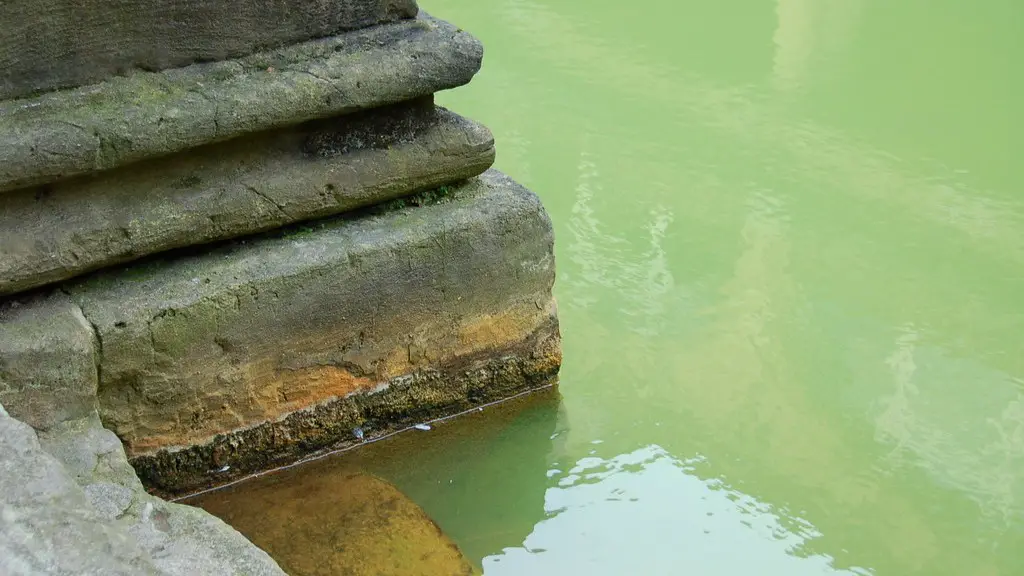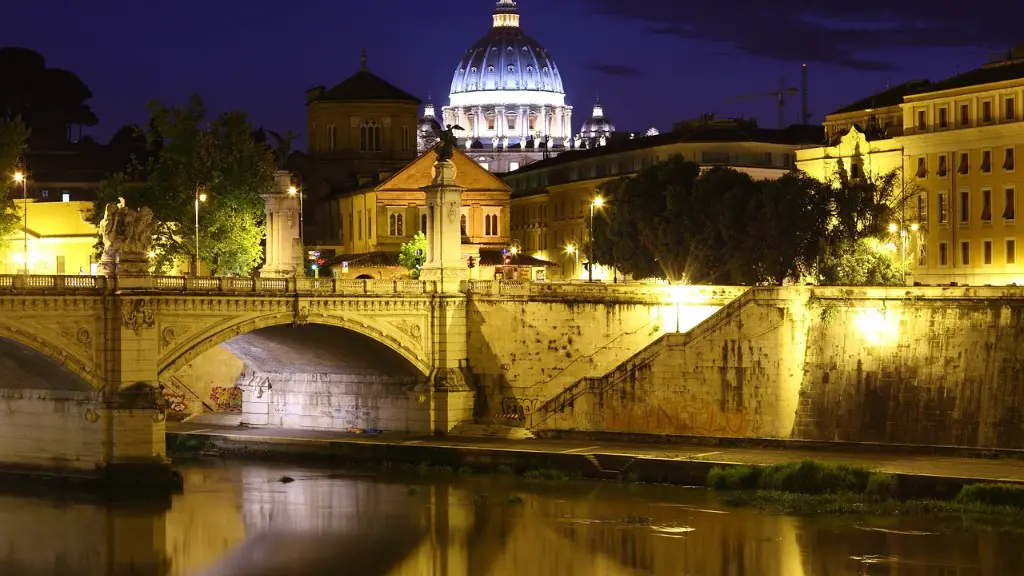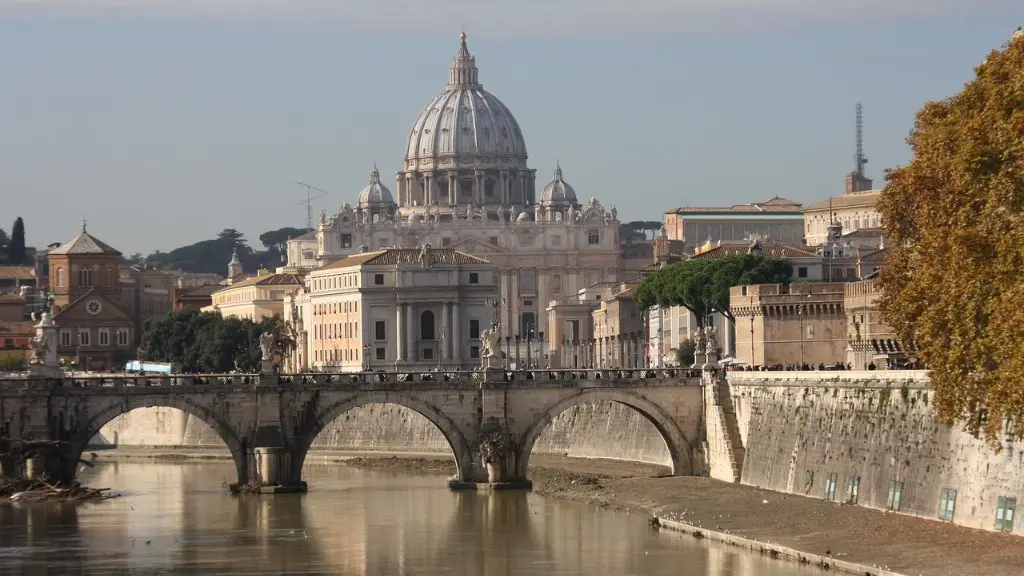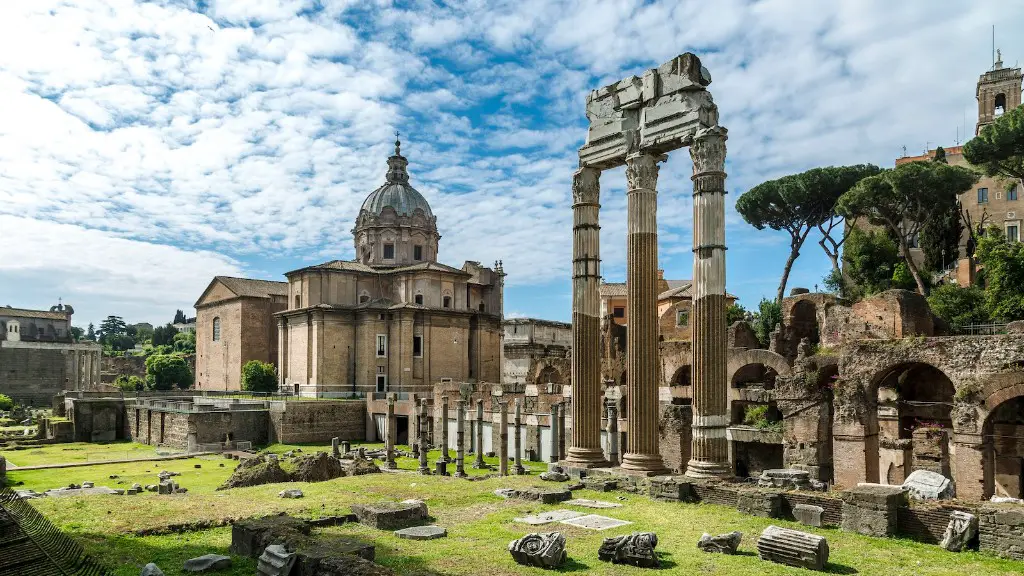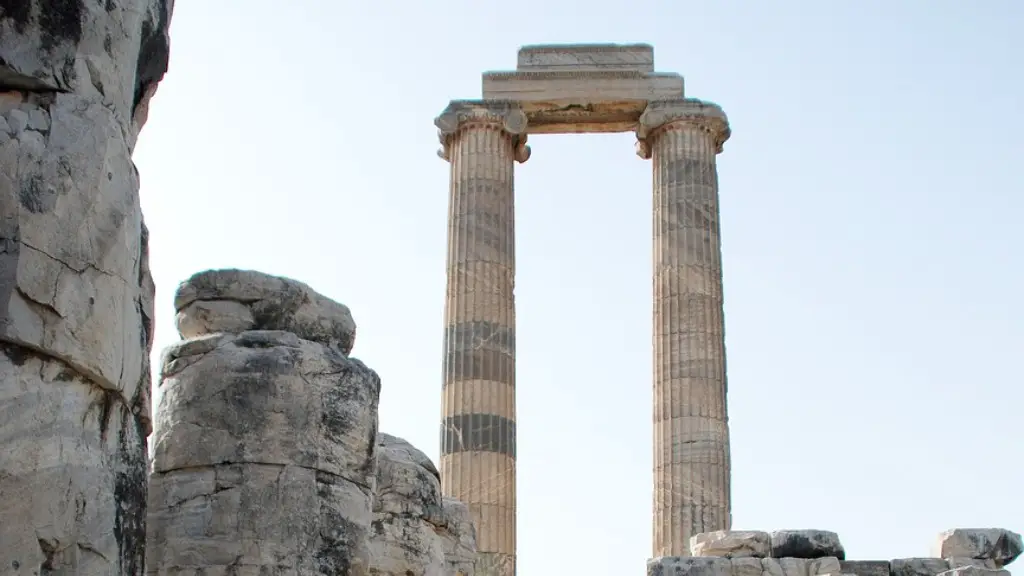Overview of Ancient Rome
Ancient Rome was founded in 753BC and reached the peak of its power in the 2nd century AD. It was the largest and most powerful of the ancient civilizations, stretching its empire across the entire Mediterranean Sea. From its capital in Rome, it fought with its enemies to rule and expand its territory. Ancient Rome was home to many powerful cultures, including Greeks, Etruscans and Celts. Its army was feared by foes and its political system was renowned for its expertise and fairness. Rome even revolutionized laws and legal systems, creating the basis for modern democracy.
Ancient Rome was also known for its alliances. It had many allies, including cities in Italy, the Latin League and the Illyrian Kingdom. Rome could have used its alliances to strengthen its position in the region and protect it from the many enemies that sought to conquer it.
Roman Alliances with Cities in Italy
One of the most important allies of ancient Rome was the cities in Italy. Rome had various treaties with cities in its home kingdom such as Antium, Anagnia, Veii and Tibur. These alliances helped Rome to remain powerful and prosperous in the region. The alliances also provided the cities with protection from their enemies. Furthermore, Rome’s alliances allowed it to become a powerful trading hub for goods and services, trading not just with cities in Italy but with those far beyond its borders.
For instance, Rome had a particularly close alliance with Antium. This coastal city remained loyal to Rome despite being perpetually besieged by Hannibal’s forces. Antium was allowed to trade in Rome’s ports and participate in Rome’s politics. The city also provided the Romans with soldiers and military know-how throughout its wars with other civilizations.
Alliance with the Latin League
Ancient Rome was also allied with the Latin League. This was a confederation of numerous cities in Latium, including Tusculum, Praeneste and Gabii. The league comprised of cities that had previously been enemies of Rome. By joining forces with them, Rome was able to dominate the region and form a powerful military alliance. Through its alliances with the Latin League, Rome could call on allied cities and their resources when needed.
The alliance with the Latin League exceeded the political sphere and had an impact on diverse aspects of life. The alliance allowed numerous cultural and religious attractions to develop, from theatres to temples. The political importance of the Latin League was so great that it was written into Roman laws. These laws established an anti-confederation pact that prevented any city in the league from attacking another and ensured Rome remained at the centre of the alliance.
Alliance with the Illyrian Kingdom
Another important alliance was the one with the Illyrian Kingdom in the Balkans. The kingdom united numerous tribes in the region, including the Ardiaei in what is today Montenegro, parts of Albania and Croatia. Rome had a treaty with the kingdom and provided military aid during the kingdom’s war with Macedon in 230BC. This provided Rome with access to important resources in the region, such as silver and horses, as well as strategic military bases.
The relationship between Rome and Illyria extended beyond military and strategic aid. Rome also provided financial help for the kingdom’s ambitious public works. This included constructing monuments, roads and other structures, as well as constructing warehouses and engaging in trade. These public works and trade not only improved the kingdom but also ensured Rome’s dominance in the region.
Roman Alliances Beyond Italy
Apart from its various alliances within Italy, Rome was also allied with many other civilizations. This included the Etruscan Empire, the Massiliote Confederacy and Pharaoh’s Egypt. Rome’s alliances enabled it to conquer vast territories and expand its empire beyond its Italian lands. The alliances also enabled Rome to gain great wealth, political power, military victories and strategic allies.
For example, Rome’s alliance with Egypt allowed it to access the kingdom’s vast resources, including gold and spices. Rome also used its alliances with other civilizations to gain vital supplies for its own military. These included weapons, armour and horses. Rome’s alliances with other civilizations strengthened its position in the region and enabled it to remain powerful for hundreds of years.
Rome’s Alliance Legacy
Ancient Rome’s alliances with other civilizations enabled it to become the greatest superpower of its time. Though the alliances were forged out of necessity, they provided Rome with great wealth, political power and military might. By acting together with other civilizations, Rome was able to remain at the centre of its own empire, despite the many enemies that sought to destroy it.
Today, Rome’s alliance legacy can still be seen. Roman alliances have provided the foundation for modern politics, law and trade. Its timeless lesson is that strength comes from a coalition of civilizations and that co-operation and unity always prevail in the end.
Role of Gods in Roman Alliances
The gods played an important role in Rome’s alliances with other civilizations. The gods were seen as guardians of the state and the protectors of its people. The gods were also seen as providing guidance for the rulers in their alliances. They were thought to bless the alliances and ensure their success.
Rome’s pantheon of gods was vast, with each one representing a different aspect of life. For instance, Neptune, the God of the Seas, had an important role in Rome’s naval trade, whilst Mars, the God of War, was thought to provide protection in Rome’s conflicts. Fortuna, the Goddess of Luck, was seen as ensuring Rome would prevail against its enemies.
The gods of Ancient Rome play an important role in its legacy. They are still remembered and worshipped in many cultures of the world. The alliances between Rome and its many partners have left a lasting impression and serve as a reminder of the power of unity.
Effectiveness of Roman Alliances
The effectiveness of Rome’s alliances was greatly enhanced by its political system. The Roman Republic provided an ideal form of government for alliances and was renowned for its fairness and transparency. The Republic was based on the principle of shared powers and privileges. This allowed Rome’s allies to remain autonomous and independent, whilst enjoying and benefiting from their association with Rome.
Roman alliances also had an impact on its foreign policy. Rome was famous for its diplomacy, which was essential for the success of its alliances. Through negotiations and careful planning, Rome was able to make deals with its enemies, as well as with allies. Rome’s diplomacy was seen as a vital tool for keeping peace and stability in the region.
Rome’s alliances were an important factor in its success as an empire. Through its alliances, Rome was able to secure vital resources, gain great wealth and strengthen its position in the region. Rome’s alliance policy also enabled it to remain powerful and prosperous for centuries.
Conclusion
Ancient Rome’s alliances enabled it to become one of the greatest and most powerful empires of its time. Rome’s alliances with cities in Italy, the Latin League and the Illyrian Kingdom played a vital role in its success. Rome was also allied with other civilizations, such as the Etruscan Empire, the Massiliote Confederacy and Pharaoh’s Egypt. Rome’s alliance legacy has left a lasting impression, with its alliances providing the basis for modern-day politics, law and trade. Rome’s alliance system was effective and provided the Romans with great strength and power.
